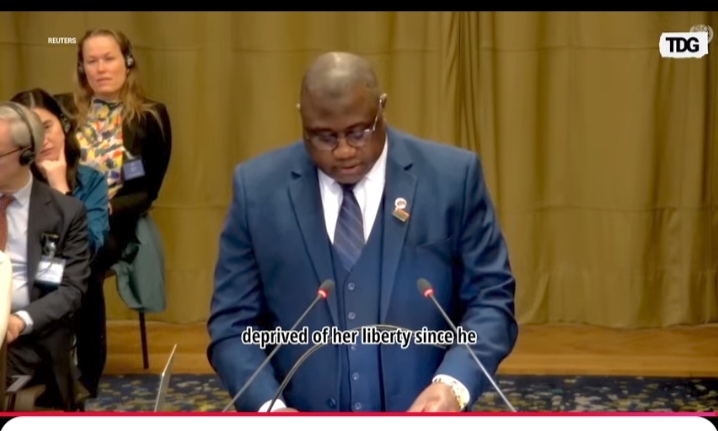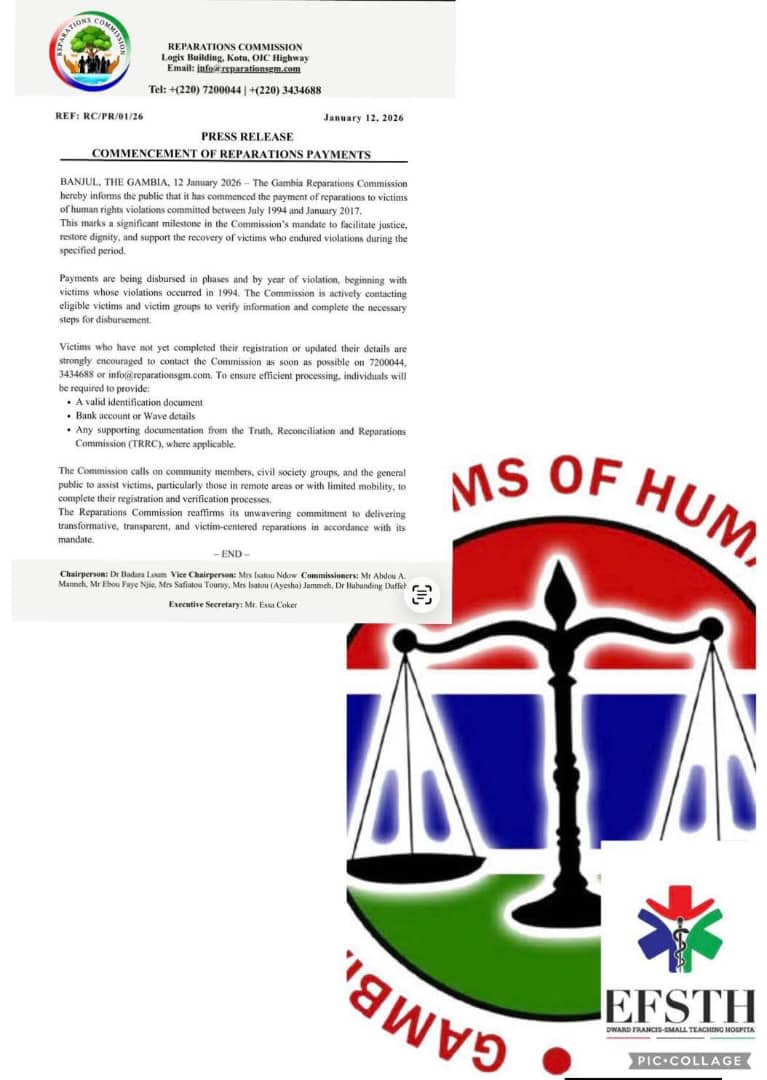By Saul Saidykhan
In Bolondala, a man named Molfaa Gikitinya struggles through life, failing at everything he tries. He started as an apprentice to his artisan father but proved useless at the trade. His father reluctantly sent him to school late—four years behind his peers—but Molfaa barely scraped through with poor grades.
Desperate for success, he spent nine years abroad chasing fortune, only to return home broke and unskilled. His only talent? Telling tall tales.
Frustrated and broke, Molfaa saw an opportunity in politics where education, competence, and experience matter less than who you know or affiliate with. A natural opportunist, he used others to fund his political ambition. Through luck and manipulation, he claws his way to the top. Once in power, he treats the office like a license to loot.
He enriches himself, his family, and his cronies. He abandons all the promises he made to his sponsors who he gradually sidelines once in office and also turn his back on those whose thick scars he had used as stepping fulcrums to climb Bolondala’s treacherous political hill.
Molfaa fills key government positions with mostly compromised characters, banking on ethnicity, inducement, and threat of retaliation to keep them loyal. Every government contract, trip, or foreign aid project becomes a chance to steal more.
Soon, he’s swimming in wealth—and arrogance. His lack of education and unchecked greed make him reckless. To silence and discredit critics, he buys off some of the loudest nominal activists, turning them into his cheerleaders.
To him, his success in pulling this off validates his belief that everyone in Bolondala is corruptible given the right price, The most shameless of these characters are Pataparay, the Scammer and Kalaa-tee the African Sepia —two smooth-talking sycophants who were formerly among his most vociferous critics but now defend his corruption and gross mismanagement without shame.
With Molfaa as role model, Bolondala soon becomes a paradise for thieves and sundry criminals. Government officials and their business cronies seem to compete to see who can loot massively the fastest. Major corruption scandals explode weekly.
At first, some citizens give Molfaa a pass, disliking his rivals more. But as life gets harder— soaring food prices, nonexistent jobs, spiked transport fares, a tanking economy, hyperinflation, unaffordable housing, pervasive lawlessness, plus with public schools, hospitals, and other social services collapsing—even his most ardent supporters can’t ignore his spectacular failures anymore.
Now, with the end of his tenure nearing, Molfaa panics.
He knows if he leaves office, he may go to jail for his known crimes alone even without the many others he is using his power of incumbency to cover up. So he lashes out, calling even moderate critics “troublemakers” who want to “burn the country.”
Any critique of corruption in his government sends him into a tailspin. His propaganda team— headed by Pataparay and Kalaa-tee bark endless spiel on his behalf, but most Bolondalans no longer buy any of it.Fed-up Bolondalans have taken to mocking the duo, calling them “Wulu Nyamatolu” (the Rabid Dogs).
However, Lang Sambujang, head of Bolondala’s Dog Owners Association- BDOA, quickly took to social media to protest the moniker: “Calling Pataparay and Kalaa-tee dogs of any kind is a big insult to our beloved four-legged friends.
It is true that they consume their own vomit, but no one can ever accuse a dog of being disloyal which is more than anyone can say about these two pathetic bozos” Lang fumed in his viral video that garnered 300K views on YouTube in less than a week. Molfaa’s camp is yet to respond as of this reporting.
Regardless, each loud bark the turncoat duo let out in defense of his depraved misrule not only reveals their fork-tongue moral turpitude, but it also exposes the nakedness of their patron’s weasel-like character. Bolondala’s bane has a name—Molfaa Gikitinya. And his time is running out.
About the author:
Saul Saidykhan, is a financial professional, and a renowned creative writer and author. He is a regular contributor to this medium.






